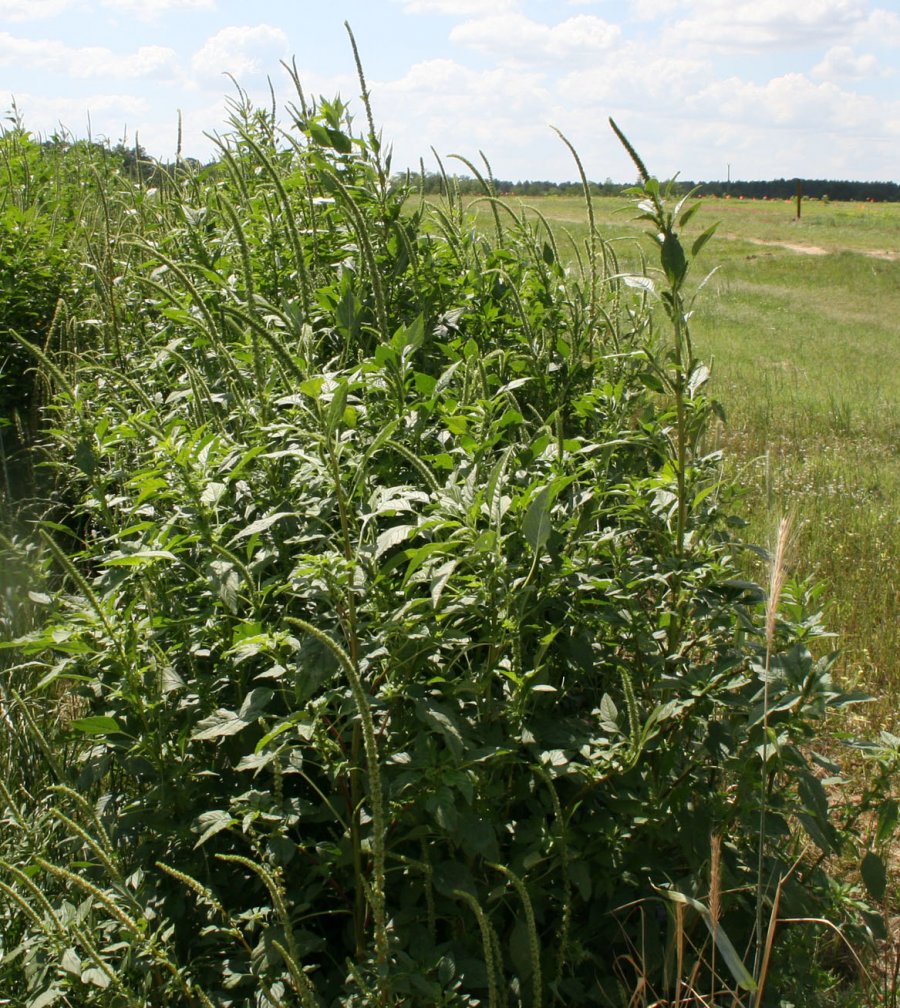UGA Extension tests peanut herbicide for 2023 registration
Published on 08/05/22
UGA Extension tests peanut herbicide for 2023 registration
By Maria M. Lameiras
Palmer amaranth, an annual broadleaf weed, can reach heights of 7 to 10 feet. It is very competitive and grows quickly, making it particularly difficult for producers to control as it becomes resistant to herbicides currently on the market.
Peanut, although a major crop in Georgia, is a minor crop in the U.S., with only about 1.5 million acres planted — versus approximately 90 million acres each of field corn and soybeans.
Due to its limited acreage, there are not many herbicides solely developed for peanuts by major agrichemical companies. Unfortunately, emerging herbicide resistance problems in pernicious weeds like Palmer amaranth are of increasing concern in peanut-producing states, and growers need more tools to combat these weeds.
University of Georgia Cooperative Extension weed scientist Eric Prostko has the job of finding new control methods for producers facing herbicide resistance in combatting problem weed species.
Brake (fluridone) is a herbicide used on cotton and in the aquatic market (Sonar), and Prostko has been testing the herbicide on peanuts since 2013. This herbicide brings a different mode of action to the peanut market that hasn’t been used in peanut before, he said.
The Weed Science Society of America (WSSA) Group 12 herbicide fits the typical southern row crop rotation schedule, which is why it could make a good fit for producers in Georgia, according to Prostko. He and his team have been working with SePRO, the manufacturer of Brake herbicide, and are hopeful that a full Section 3 registration for use in peanut will be available from the U.S. Environmental Protection Agency in 2023.
“We do different types of field tests — variety tolerance to make sure there are no differential sensitivities and efficacy (control) trials to compare the herbicide to the current standards that are already in the marketplace,” Prostko said. “When we are trying to evaluate crop tolerance, we try to keep all weeds out of those plots, because weeds cause damage to the crops and we need to separate out what the herbicide is doing to the peanut plants. In weedy trials, we compare the results to the other herbicides that are already out there.”
The herbicide is primarily being tested for control of Palmer amaranth, one of the most troublesome weeds for peanut growers.
While there are several herbicides options available to treat Palmer amaranth in peanut, growers in other states, specifically Alabama, Arkansas and Mississippi, have received a Section 18 emergency exemption to use Brake in peanut crops. The exemption is intended to address a serious Palmer amaranth problem that has become resistant to traditionally used herbicides currently on the market for peanut in those states.
“This is an emerging situation. Our current herbicide programs in Georgia continue to work, but we are planning for the future,” Prostko said. “That widespread resistance to PPO-inhibiting herbicides will reach us at some point, and a lot of things we are doing now will be less effective because of the evolution of resistance. Brake will be in our toolbox for when that time comes.”
Prostko conducts all tests on the herbicide on dedicated plots at the UGA Tifton Campus Ponder Research Farm, averaging 40 to 70 field trials at a time.
Chad Abbott, a doctoral student in the Department of Crop and Soil Sciences, has worked with Prostko on much of the fieldwork on Brake.
“We do everything a producer would do in those plots — plant, spray and evaluate what is going on,” he said.
Maria M. Lameiras is a managing editor with the University of Georgia College of Agricultural and Environmental Sciences.
Source: UGA CAES Newswire

